Find Help
More Items From Ergsy search
-

Delirium: A Patient Story at Leicester's Hospitals
Relevance: 100%
-

Delirium
Relevance: 73%
-

The Delirium Question on Patientrack
Relevance: 69%
-
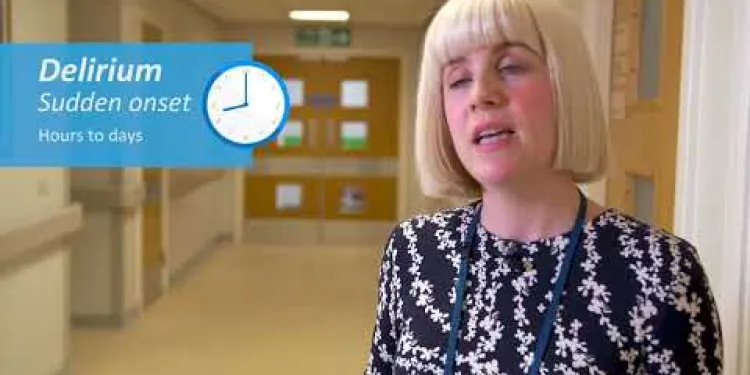
What is Delirium
Relevance: 67%
-

What is delirium
Relevance: 63%
-
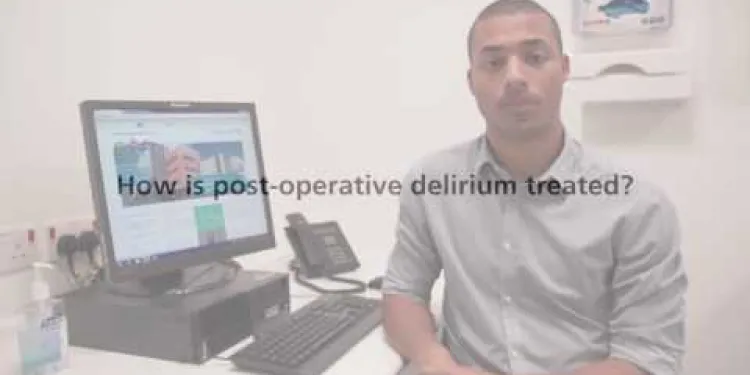
Experiencing delirium after surgery
Relevance: 63%
-
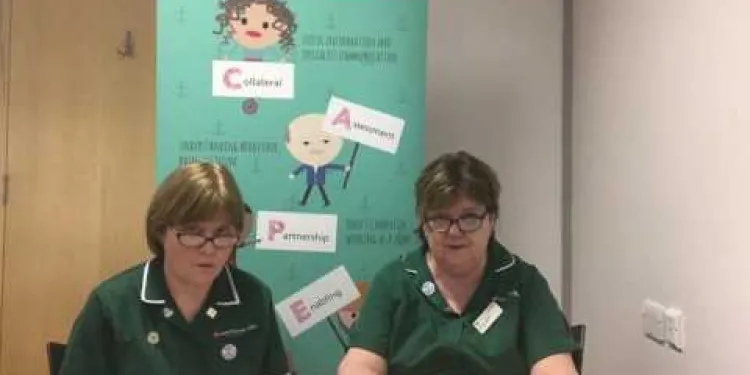
How do you spot delirium
Relevance: 58%
-

Sepsis - a patient story
Relevance: 46%
-

Patient Stories - Having a kidney transplant
Relevance: 45%
-

Danny's Story
Relevance: 42%
-
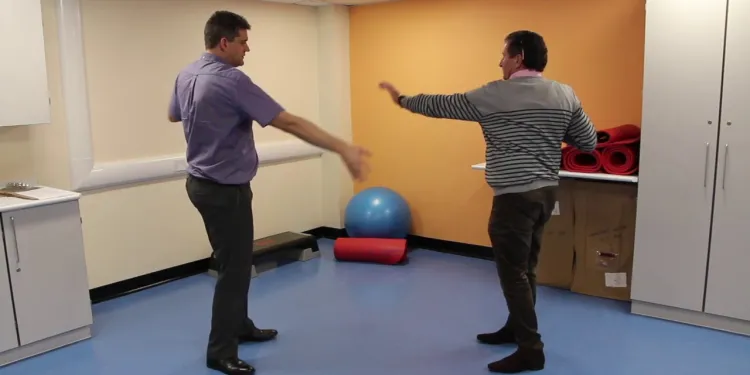
Sean's Story - There is another way. Information for prescribers
Relevance: 40%
-

Heart-lung transplant patient shares her story
Relevance: 40%
-

Bernard's Story - Lung Transplant
Relevance: 40%
-

Matthew's Story: Kidney Transplant - Part 1
Relevance: 36%
-

Dr Philippa Kaye's story
Relevance: 36%
-

Home Haemodialysis - Donna's story
Relevance: 35%
-

Emma's story: My brain tumour story
Relevance: 33%
-

HIV - My Story - Florence | NHS
Relevance: 33%
-

Kidney transplant waiting stories – DJ Ace and Lauren | NHS Organ Donation
Relevance: 32%
-
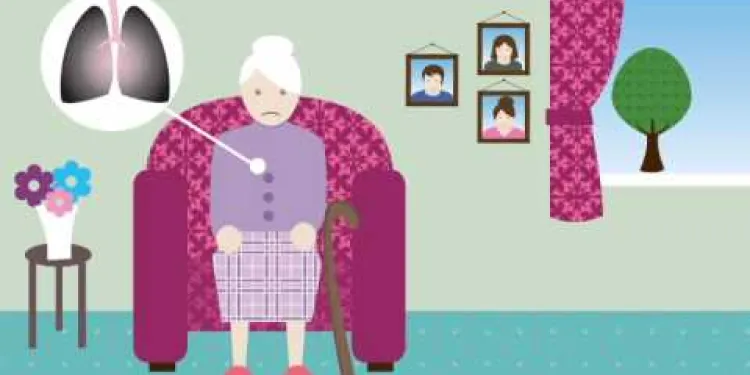
Dorothy's Story (Falls/Chest Infection)
Relevance: 32%
-

Parkinson's disease: Karen's story | NHS
Relevance: 31%
-

Fibromyalgia: Suzanne's story | NHS
Relevance: 31%
-

Pam’s story - The NHS Diabetes Prevention Programme
Relevance: 30%
-

Heart Attack Stories | NHS
Relevance: 29%
-

Mental Health: Laura's Story | NHS
Relevance: 28%
-

Osteoarthritis: Elaine's story | NHS
Relevance: 28%
-

Endometriosis - My Story | NHS
Relevance: 28%
-

Epilepsy - My Story | NHS
Relevance: 28%
-

Positioning for Breathless Patient
Relevance: 27%
-

HPV - My Story | NHS
Relevance: 27%
-
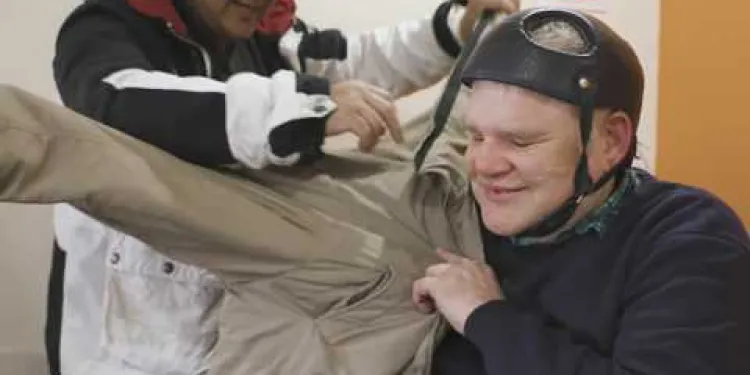
Transforming Care for people with Learning Disabilities and/ or Autism: Peter's Story
Relevance: 27%
-

Autism - My Story - Rosalind | NHS
Relevance: 27%
-

Osteoarthritis: Elaine's story | NHS
Relevance: 27%
-

Joan's story - Aphasia Awareness
Relevance: 27%
-

Adam's story on stammering - Therapy
Relevance: 26%
-

Anorexia: Katie's story | NHS
Relevance: 26%
-

Heart Attack Stories | NHS
Relevance: 26%
-

Autism: Graeme's story | NHS
Relevance: 26%
-

Autism - My Story - Adrian | NHS
Relevance: 26%
-

Can online patient forums provide reliable information on waiting times?
Relevance: 26%
Delirium: A Patient Story at Leicester's Hospitals
Understanding Delirium
Delirium is an acute, often sudden change in attention and mental state, impacting a person’s ability to think clearly, pay attention, and maintain awareness. It is particularly prevalent in hospital settings, especially among elderly patients. Leicester's hospitals have dedicated significant resources to managing and understanding this condition, aiming to reduce its prevalence and impact.
A Personal Journey Through Delirium
One notable case involved Mr. John Smith, a 75-year-old man admitted for knee surgery at the Leicester Royal Infirmary. Post-surgery, Mr. Smith exhibited signs of confusion, restlessness, and was unable to recognise his surroundings. With timely intervention, healthcare professionals identified these symptoms as delirium, likely exacerbated by post-operative stress and medications.
Care and Treatment at Leicester's Hospitals
Leicester's hospitals have implemented protocols to identify and manage delirium efficiently. In Mr. Smith's case, the medical team promptly adapted his care plan. This included environmental adjustments like ensuring proper lighting, allaying his anxiety through constant reassurance, and carefully monitoring his medications. Over the course of a week, Mr. Smith showed significant improvement and regained his cognitive functions.
Preventive Measures and Education
Recognising the importance of prevention, Leicester's hospitals advocate for early identification of at-risk individuals. They provide comprehensive education to both healthcare providers and families about the signs and preventive strategies for delirium. Protocols focus on minimal use of sedatives, promoting mobility, ensuring adequate hydration, and maintaining a regular sleep-wake cycle.
Support for Families
The emotional toll of delirium on patients and their families is considerable. Leicester's hospitals offer robust support systems, including counselling and informative sessions for families to better understand and manage the condition. Mr. Smith's family was guided through every step, ensuring they were well-prepared to support him during and after his hospital stay.
Conclusion
Mr. Smith's story is one of many, highlighting the critical role of Leicester's hospitals in managing delirium. Through early detection, comprehensive care, and family support, these hospitals work tirelessly to ensure better outcomes for patients experiencing this challenging condition.
This HTML document provides a structured and informative overview of delirium management at Leicester's hospitals, tailored for a UK audience.Delirium: A Patient Story at Leicester's Hospitals
What is Delirium?
Delirium is when someone suddenly gets confused and can't think clearly. It mostly happens to older people in the hospital. Leicester's hospitals work hard to help people with delirium and make it happen less often.
Mr. Smith's Story
Mr. Smith is 75 years old. He went to Leicester Royal Infirmary for knee surgery. After the surgery, he was confused and couldn't recognize where he was. The doctors found out he had delirium because of the stress and medicine after his surgery.
How Leicester's Hospitals Help
At Leicester's hospitals, doctors and nurses have plans to help people with delirium. For Mr. Smith, they made sure he had enough light, helped him feel less worried, and carefully checked his medicine. After a week, Mr. Smith felt much better.
Stopping Delirium Before It Starts
Leicester's hospitals teach doctors, nurses, and families about what causes delirium and how to stop it. They try not to use strong medicines like sedatives, help people move around, make sure they drink enough water, and keep a regular sleep schedule.
Helping Families
Delirium is hard on both patients and their families. Leicester's hospitals provide support like talking sessions to help families understand delirium. Mr. Smith's family got help so they knew how to care for him during and after his hospital time.
In Summary
Mr. Smith's story shows how important Leicester's hospitals are in helping people with delirium. With early help, good care, and family support, hospitals help make things better for patients.
Frequently Asked Questions
What is delirium?
Delirium is a sudden change in a person’s mental state, marked by confusion, disorientation, and difficulty paying attention. It can develop quickly and varies in intensity.
What are the common causes of delirium?
Common causes of delirium include infections, medications, dehydration, surgery, a sudden change in environment, and underlying chronic health conditions.
Who is most at risk of developing delirium?
Older adults, particularly those with dementia or other cognitive impairments, are most at risk. Other risk factors include severe illness, frailty, and sensory impairments such as vision or hearing loss.
What symptoms should I look out for?
Symptoms of delirium include sudden confusion, poor concentration, disorientation, hallucinations, restlessness, and sudden changes in behavior.
Is delirium the same as dementia?
No, delirium is different from dementia. Delirium usually has a sudden onset and is often temporary, whereas dementia develops gradually and is a chronic condition.
How is delirium diagnosed?
Delirium is diagnosed through clinical assessments that may include patient history, physical exams, and possibly neurological tests. Doctors may also use screening tools like the Confusion Assessment Method (CAM).
Can delirium be treated?
Yes, delirium can often be treated by addressing the underlying cause, such as treating an infection or adjusting medications. Supportive care to reorient the patient and ensure safety is also critical.
How long does delirium last?
The duration of delirium can vary widely. It may last for a few days to several weeks, depending on the underlying cause and the individual's overall health.
How can I help someone experiencing delirium?
Providing a calm, familiar environment, ensuring adequate hydration and nutrition, and reorienting the person to time and place can help. Regular communication and reassurance are also important.
Are there long-term effects of delirium?
Some individuals fully recover from delirium without long-term effects, while others may experience lingering cognitive impairments or an increased risk of developing dementia.
Can delirium be prevented?
Some cases of delirium can be prevented by managing risk factors such as avoiding unnecessary medications, promoting good hydration and nutrition, and ensuring a calm and stable environment.
Is delirium common after surgery?
Yes, delirium is relatively common after surgery, particularly in older adults. This is often due to the stress of surgery, anesthesia, and postoperative pain medications.
What should I do if I suspect someone has delirium?
If you suspect someone has delirium, it is important to seek medical attention promptly. Early intervention can help determine the underlying cause and improve outcomes.
What role do family members play in managing delirium?
Family members play a crucial role in supporting a person with delirium by providing reassurance, reorientation, and advocating for appropriate medical care.
Where can I find more information about delirium at Leicester's Hospitals?
For more information, you can visit the website of Leicester's Hospitals or speak with healthcare providers at the hospital who can provide guidance and support.
What is delirium?
Delirium is when someone gets very confused and can't think clearly. It can happen quickly and is usually caused by being sick or taking certain medicines.
Here are some ways to help someone with delirium:
- Make sure they are in a calm and quiet place.
- Talk to them in a gentle and easy-to-understand way.
- Remind them where they are and what is happening.
- Use pictures or objects to help explain things.
Delirium is when someone suddenly gets very confused. They might not know where they are or have trouble focusing. It can happen very fast and can be really strong or a little bit strong.
Some helpful things to do:
- Keep a calm and quiet place around the person.
- Talk to them slowly and clearly.
- Use simple words and sentences.
- Help them stay safe and comfortable.
- You can use pictures or drawings to help explain things.
What can make someone confused?
Many things can make a person feel confused. These include: infections, taking medicine, not drinking enough water, having an operation, moving to a new place, and long-term health problems.
Who might get delirium most easily?
Older people, especially those with memory problems like dementia, are most in danger. Other things that can make it risky are being very sick, weak, or having trouble seeing or hearing.
What signs should I watch for?
Signs of delirium are:
- Sudden confusion
- Can't focus
- Don't know where you are
- Seeing things that aren't there
- Feeling very restless
- Sudden changes in how you act
If you find it hard to understand, try asking someone to explain. You can also use tools like text-to-speech to hear the words out loud. Keeping a notebook to write down anything confusing can also help.
Is delirium the same as dementia?
Delirium and dementia are not the same. Delirium starts quickly and makes you confused. Dementia happens slowly over time.
Some tools or techniques that can help:
- Ask a doctor to explain more
- Write down how you feel
- Use pictures to understand better
No, delirium is not the same as dementia. Delirium happens suddenly and usually doesn't last long. Dementia starts slowly and lasts a long time.
How do doctors find out if someone has delirium?
Doctors look at how a person is behaving and feeling. They may ask questions or do tests to help them decide.
Here are some steps that help:
- Talking to the person to see how they are thinking.
- Asking family or friends about any changes they have noticed.
- Doing simple tests to check memory or understanding.
- Looking at medical history and any medicines the person takes.
To help understand, you can:
- Draw pictures or use charts.
- Ask for someone to explain things clearly.
- Use apps or tools that read text out loud.
Doctors find out if someone has delirium by asking questions and checking their health. They might listen to the person's history and look at their body. Sometimes, they do special brain tests. Doctors also have a tool called the Confusion Assessment Method (CAM) to help them.
Can we help someone with delirium?
Yes, we can often help with delirium by fixing what is causing it. This might mean treating an infection or changing medicines. It is also important to help the person feel safe and know where they are. This includes being gentle and talking to them kindly.
Using pictures or simple reminders can help the person understand better. It is also good to have family or friends nearby when possible.
How long does confusion last?
Confusion can last a few hours or a few days. Sometimes it can be a week or more.
If someone is confused, it's good to have someone with them. You can help by talking calmly and explaining things. Using pictures or simple words can also help.
Delirium can last for different amounts of time. It might last a few days or a few weeks. How long it lasts depends on why the person has delirium and how healthy they are.
If you find reading hard, you can ask someone to read with you. You can also use tools that read text out loud, like text-to-speech apps.
How can I help someone with delirium?
Delirium is when a person gets very confused. It can happen quickly. Here are ways you can help:
- Stay Calm: Speak softly and gently. Don't get upset.
- Keep Things Simple: Use easy words and short sentences.
- Be There For Them: Sit with them. Hold their hand if they want.
- Help Them Feel Safe: Tell them who you are. Remind them where they are.
- Ask for Help: Talk to a nurse or doctor if they need more help.
- Use Pictures: Show pictures if it helps them understand.
You can also use tools like picture cards to help them understand better.
Make sure the place is calm and familiar. Give them enough water and food. Help them know what time and place it is. Talk to them often and tell them everything is okay.
Can delirium cause problems later on?
Delirium can cause confusion and worry. It might make you feel mixed up. Sometimes, the effects of delirium can last for a while. It can affect memory and thinking.
Here are some ways to help:
- Talk to a doctor if you feel confused.
- Write things down to remember better.
- Ask friends or family for help.
Some people get better from delirium and feel fine. Others may have problems with memory or thinking. They might also have a higher chance of getting dementia.
Can we stop delirium from happening?
Delirium is when someone gets confused and may not think clearly. We can try to stop it.
Here are some ways to help:
- Make sure the person drinks enough water.
- Check that the person's room is not too noisy or bright.
- Help them get enough sleep.
- Keep a regular routine.
- Let them have things they know well, like a favorite book or photo.
- Talk to the doctor about any medicines they take.
Using these ideas can help reduce the chance of delirium.
Sometimes, people can stop delirium by taking care of things that might cause it. Here are some ways to help:
- Avoid taking medicines you don't need.
- Drink enough water and eat healthy food.
- Keep things calm and the same around the person.
Using tools like reminders to drink water or eat healthy snacks can help, and having a quiet place can make a big difference.
Do people often get confused after surgery?
Yes, feeling confused after surgery happens a lot, especially for older people. This can happen because surgery is hard on the body. Medicines used to make you sleep during surgery and help with pain after can also make you feel confused.
Here are some tips to help:
- Tell doctors if you feel confused.
- Have a family member or friend stay with you.
- Ask for simple explanations about what is happening.
What to do if you think someone is confused (delirium)
If you think someone might have delirium, it is important to get them to a doctor quickly. Getting help early can find out what is causing it and help them get better.
How can family members help with delirium?
Family members have an important job in helping with delirium. Delirium makes people feel confused and not themselves.
- Visit Often: Spend time with the person so they do not feel alone.
- Speak Calmly: Use a gentle voice to help them feel safe.
- Remind Them: Tell them what day it is and where they are.
- Bring Comfort Items: Give them things they like, like a favorite blanket.
- Talk to Doctors: Make sure to tell the doctors what helps the person feel better.
You can also use pictures and easy words to help explain things.
Family members are very important in helping someone with delirium. They can make the person feel safe, remind them where they are, and help them get the right care from doctors.
How can I learn more about confusion at Leicester's Hospitals?
If you want to know more about confusion (delirium) at Leicester's Hospitals, you can:
- Visit the hospital's website.
- Ask a nurse or doctor for help.
- Look for leaflets or booklets at the hospital.
- Use a computer or tablet with a helper to search online.
If you want to know more, you can go to the Leicester's Hospitals website. You can also talk to the doctors or nurses at the hospital. They can help you and give you more information.
Useful Links
This website offers general information and is not a substitute for professional advice.
Always seek guidance from qualified professionals.
If you have any medical concerns or need urgent help, contact a healthcare professional or emergency services immediately.
Some of this content was generated with AI assistance. We’ve done our best to keep it accurate, helpful, and human-friendly.
- Ergsy carfully checks the information in the videos we provide here.
- Videos shown by Youtube after a video has completed, have NOT been reviewed by ERGSY.
- To view, click the arrow in centre of video.
- Most of the videos you find here will have subtitles and/or closed captions available.
- You may need to turn these on, and choose your preferred language.
- Go to the video you'd like to watch.
- If closed captions (CC) are available, settings will be visible on the bottom right of the video player.
- To turn on Captions, click settings .
- To turn off Captions, click settings again.
More Items From Ergsy search
-

Delirium: A Patient Story at Leicester's Hospitals
Relevance: 100%
-

Delirium
Relevance: 73%
-

The Delirium Question on Patientrack
Relevance: 69%
-

What is Delirium
Relevance: 67%
-

What is delirium
Relevance: 63%
-

Experiencing delirium after surgery
Relevance: 63%
-

How do you spot delirium
Relevance: 58%
-

Sepsis - a patient story
Relevance: 46%
-

Patient Stories - Having a kidney transplant
Relevance: 45%
-

Danny's Story
Relevance: 42%
-

Sean's Story - There is another way. Information for prescribers
Relevance: 40%
-

Heart-lung transplant patient shares her story
Relevance: 40%
-

Bernard's Story - Lung Transplant
Relevance: 40%
-

Matthew's Story: Kidney Transplant - Part 1
Relevance: 36%
-

Dr Philippa Kaye's story
Relevance: 36%
-

Home Haemodialysis - Donna's story
Relevance: 35%
-

Emma's story: My brain tumour story
Relevance: 33%
-

HIV - My Story - Florence | NHS
Relevance: 33%
-

Kidney transplant waiting stories – DJ Ace and Lauren | NHS Organ Donation
Relevance: 32%
-

Dorothy's Story (Falls/Chest Infection)
Relevance: 32%
-

Parkinson's disease: Karen's story | NHS
Relevance: 31%
-

Fibromyalgia: Suzanne's story | NHS
Relevance: 31%
-

Pam’s story - The NHS Diabetes Prevention Programme
Relevance: 30%
-

Heart Attack Stories | NHS
Relevance: 29%
-

Mental Health: Laura's Story | NHS
Relevance: 28%
-

Osteoarthritis: Elaine's story | NHS
Relevance: 28%
-

Endometriosis - My Story | NHS
Relevance: 28%
-

Epilepsy - My Story | NHS
Relevance: 28%
-

Positioning for Breathless Patient
Relevance: 27%
-

HPV - My Story | NHS
Relevance: 27%
-

Transforming Care for people with Learning Disabilities and/ or Autism: Peter's Story
Relevance: 27%
-

Autism - My Story - Rosalind | NHS
Relevance: 27%
-

Osteoarthritis: Elaine's story | NHS
Relevance: 27%
-

Joan's story - Aphasia Awareness
Relevance: 27%
-

Adam's story on stammering - Therapy
Relevance: 26%
-

Anorexia: Katie's story | NHS
Relevance: 26%
-

Heart Attack Stories | NHS
Relevance: 26%
-

Autism: Graeme's story | NHS
Relevance: 26%
-

Autism - My Story - Adrian | NHS
Relevance: 26%
-

Can online patient forums provide reliable information on waiting times?
Relevance: 26%


